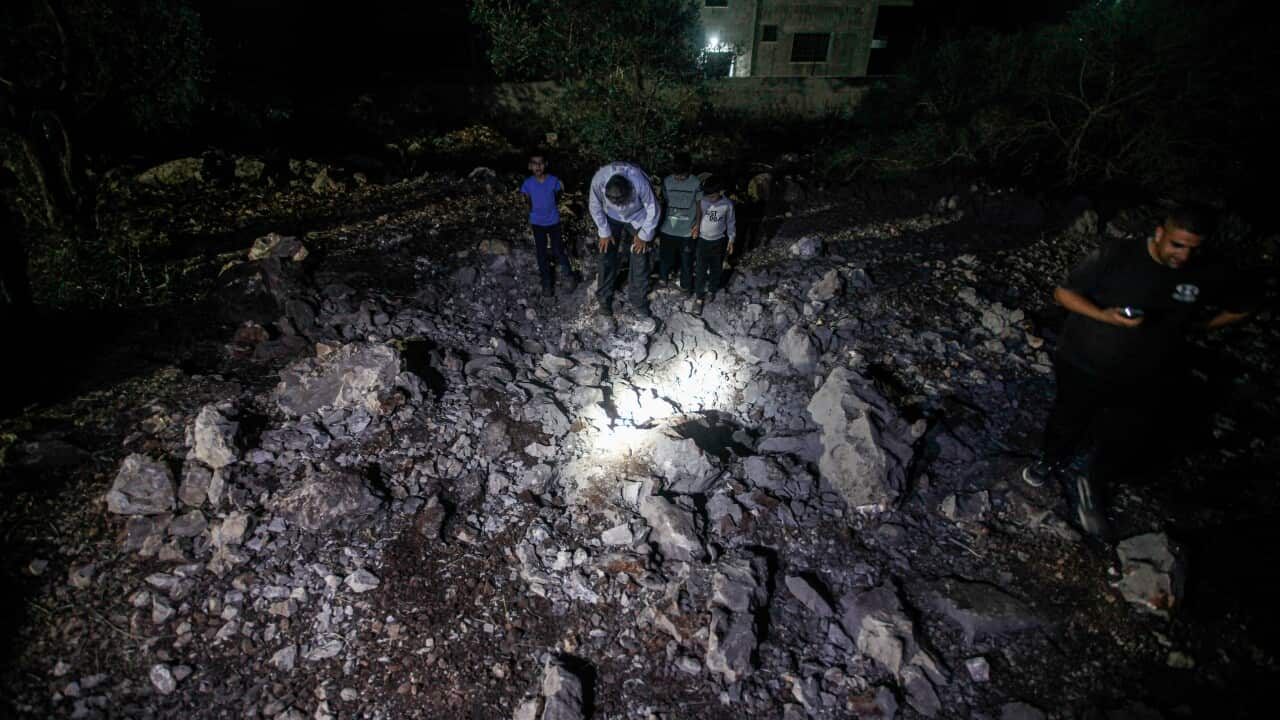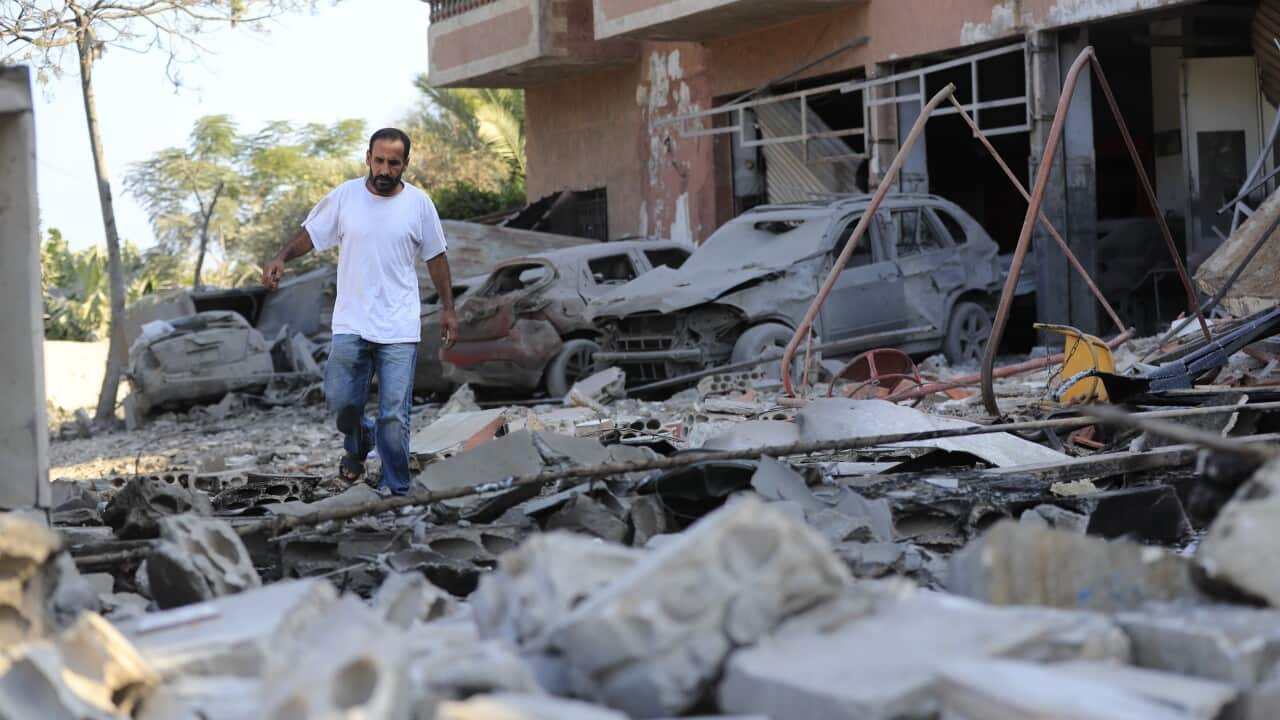More than 240,000 Lebanese Australians woke up to the news of intense Israeli airstrikes in Lebanon — there since the end of the 1975-1990 civil war.
But Ghadir Khalife, like many in the diaspora with family still in Lebanon, said she never went to sleep.
"I've woken up throughout the night, just constantly checking my phone, constantly worried," she told SBS News.
Khalife's family, including her mother, are currently in Lebanon, with some members living across the southern areas of Ghaziyeh, Nabatieh and Dahiyeh and the eastern Bekaa Valley.
They've been unable to flee because rent is expensive in other areas.
"A lot of them can't leave because there's nowhere to go," Khalife said.
"If you don't have outside help, the situation is hopeless."
'Lebanon can't afford more devastation'
At least 492 people, including 35 children, have been killed and 1,645 wounded in Israeli airstrikes that hit Beirut and southern Lebanon on Monday. It comes as the country reels from .
Herzi Halevi, Israeli Defence Forces Chief of the General Staff, said the airstrikes were part of a "proactive offensive operation", adding: "Essentially, we are targeting combat infrastructure that Hezbollah has been building for the past 20 years."
The operation which involved thousands of pagers and walkie-talkies exploding was widely attributed to Israel, which has not confirmed nor denied responsibility.
Israel has a history of warring with Hezbollah, and the uptick in attacks comes nearly one year after militants from Hamas entered southern Israel and killed 1,200 people.
The Israeli military's retaliatory assault on Gaza has killed more than 41,300 people, according to the enclave's health ministry.
"It's very, very disturbing," said Raymond Najar, acting president of the Australian Lebanese Association.
"The Palestinian people in Gaza and the West Bank and now people in Lebanon are under attack.
"It's totally unfair that Israel thinks it has carte blanche ability to do the death and destruction that it's causing."

Thousands of Lebanese fled the south, causing the main highway out of the southern port city of Sidon to be jammed with cars heading toward Beirut in the largest exodus since 2006. Source: AAP / STR/EPA
Najar said its destruction will cripple food stocks that will be needed during the upcoming winter.
"The Lebanese people have gone through so much in the last 10 years with a major collapse of the economy, the devaluation of the lira, the three years of COVID and numerous wars.
"Lebanon can't afford more devastation."
Penny Wong calls for de-escalation
Foreign Affairs Minister Penny Wong, who is in New York for high-level United Nations talks, said the Australian government was "deeply concerned" by the escalation between Israel and Hezbollah.
"We have consistently said we wish to see de-escalation. We believe a wider regional conflict is not in the interests of any of the peoples of the region," she said.

Foreign Minister Penny Wong is urging Australians in the region to leave while commercial flights remain available. Source: AAP / Richard Drew
"People say they respect the Lebanese community when Ramadan or other religious celebrations come around," she said.
"But we don’t feel that support when we're suffering. We're upset and we're tired."

As some of Ghadir Khalife's relatives tried to flee southern Lebanon, she said an airstrike caused a large rock to crush their vehicle. Source: Supplied
"Lebanese people will always stand together and be resilient."










